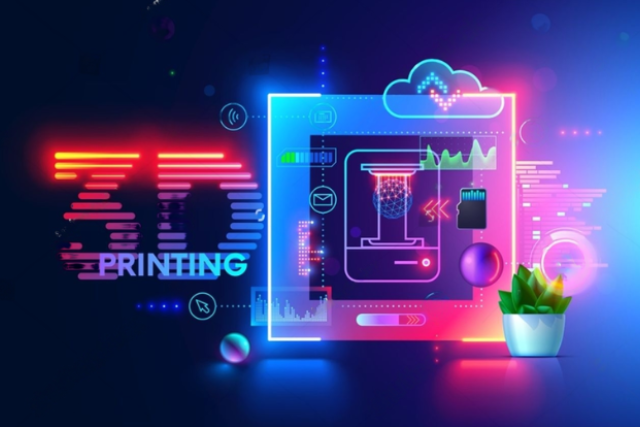3D Printing Dubai in Surgical Tool Design
October 22, 2025 | by IoT Development Company

In recent years, Dubai has become a hub for innovation in healthcare technology. Among the most remarkable advancements is the integration of 3D printing Dubai into surgical instrument design. This technology is changing how surgeons and engineers create, test, and use tools during operations. The approach combines precision, customization, and cost-efficiency, giving the medical sector in Dubai a strong competitive edge.
Advancing Precision in Surgical Design
Precision plays a key role in surgical performance. The use of advanced design software and additive manufacturing techniques allows engineers to produce surgical tools that meet exact specifications. Traditional manufacturing methods often involve complex machining or molding processes that can lead to variation in dimensions. Through digital modeling, every curve and angle of an instrument can be refined for accuracy.
This improvement in precision helps surgeons achieve better control during procedures. For instance, tools used in neurosurgery or orthopedic operations must be extremely accurate to avoid damaging delicate tissues. The ability to produce fine details ensures that surgical outcomes are safer and more predictable. Hospitals in Dubai now rely on these custom instruments for high-risk and minimally invasive procedures.
Customization for Individual Needs
Every patient is different, and so are the challenges faced by surgeons. One of the most significant benefits of using 3D printing Dubai is the ability to customize instruments for each case. Engineers can design tools based on specific anatomical data from MRI or CT scans. This makes it possible to create grips, handles, and blades that perfectly match the surgeon’s technique or the patient’s anatomy.
Customization also supports new surgical techniques. Doctors can request tools with specific angles, lengths, or features that are not available in standard kits. As a result, surgeries become faster and more efficient. The time saved in adjusting or replacing unsuitable instruments during operations can be critical. Moreover, personalized instruments can enhance comfort for the medical team, improving overall surgical performance.
Rapid Prototyping and Testing
Before any surgical tool reaches an operating room, it must go through multiple design and testing stages. Traditional manufacturing could take weeks or even months to develop a single prototype. With the latest technologies in Dubai, new designs can be printed and tested within hours. Rapid prototyping allows engineers and surgeons to collaborate closely, making changes instantly and testing the new version almost immediately.
This process significantly shortens the development cycle. It also reduces the financial risk involved in creating new tools. Hospitals can now experiment with innovative shapes, mechanisms, and materials without major investments. Once the final prototype passes clinical and safety tests, it can move quickly into full production.
Cost-Effective Manufacturing
The healthcare sector in Dubai constantly seeks ways to balance quality with cost. Traditional manufacturing of surgical tools involves multiple suppliers, complex logistics, and expensive machinery. By adopting digital manufacturing, hospitals and medical suppliers save both time and money. The process requires fewer raw materials and less energy. Additionally, it eliminates the need for large inventory storage, as instruments can be produced on demand.
This affordability is especially valuable for research institutions and small medical facilities. They can now access high-quality instruments at lower costs. It also encourages innovation, as smaller organizations can experiment with their own designs without relying on international suppliers.
Biocompatible and Sustainable Materials
Material science plays a crucial role in the success of medical tools. Dubai’s focus on healthcare innovation includes the use of biocompatible materials that are safe for human contact. Polymers and metal alloys used in the process can withstand sterilization and maintain strength during repeated use.
In addition to safety, sustainability is becoming an important goal. The digital manufacturing approach minimizes material waste compared to traditional machining. Many facilities in Dubai now recycle or reuse leftover materials, aligning with the city’s vision for environmentally responsible healthcare solutions.
Enhancing Training and Education
The impact of new manufacturing technologies extends beyond the operating room. Medical universities and training centers in Dubai use printed replicas of surgical instruments and anatomical models to enhance learning. These tools help medical students and young surgeons understand the mechanics of real operations.
The models allow learners to practice techniques safely before handling live cases. They can also study the ergonomics of different instrument designs, improving their confidence and skills. This training advantage contributes to Dubai’s growing reputation as a global education center in medical innovation.
Collaboration Between Engineers and Surgeons
The integration of advanced manufacturing techniques has encouraged stronger collaboration between medical professionals and engineers. Surgeons provide feedback on tool performance, while designers use that input to refine models digitally. This partnership helps create instruments that truly meet clinical needs.
Dubai’s innovation ecosystem supports these collaborations through research centers and healthcare accelerators. Startups and established hospitals often work together to develop specialized solutions, ensuring the technology continues to evolve. This cooperative approach has positioned Dubai as a leader in medical device innovation across the Middle East.
Future Outlook for Surgical Innovation
The transformation of surgical instrument design in Dubai is just beginning. As technology continues to evolve, future instruments may include smart sensors or connected components. These could monitor pressure, movement, or temperature during operations, providing real-time feedback to surgeons.
Regulatory authorities in Dubai are also developing guidelines to ensure the safe use of these advanced tools. Clear standards will help hospitals adopt innovations more confidently while maintaining patient safety. The city’s commitment to combining technology, healthcare, and sustainability promises to keep it at the forefront of global medical advancement.
Conclusion
The integration of 3D printing Dubai into healthcare has transformed how surgical instruments are designed and produced. Precision, customization, and cost-efficiency now define modern surgical tools.
Engineers and surgeons collaborate closely to create instruments that meet the highest standards of safety and performance. With its strong focus on innovation and sustainability, Dubai continues to set new benchmarks in medical technology, shaping the future of surgery worldwide.
RELATED POSTS
View all



